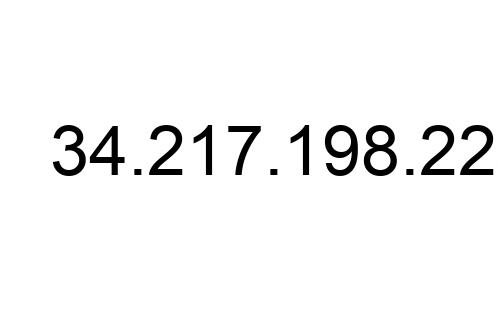The Role Of Technology In Modern Gambling
Technology plays a critical role in modern gambling, transforming how operators address ethical concerns and user experience. Advanced tools now streamline processes, monitor fairness, and provide safer gambling environments.
- Artificial Intelligence (AI): AI enhances fraud detection, monitors player behavior, and promotes responsible gambling. For example, algorithms identify problematic patterns in betting activity, allowing timely interventions.
- Blockchain Technology: Blockchain ensures transparency by enabling traceable and tamper-proof transactions. For instance, smart contracts verify payout rates and secure player data.
- Data Analytics: Modern analytics tools analyze vast amounts of gambling data in real-time to detect irregularities. They also personalize offers and game suggestions while respecting ethical advertising guidelines.
- Facial Recognition Software: Facial scanning technologies prevent underage gambling and manage self-exclusion programs. These prevent access to gambling platforms when restrictions are set.
By integrating these technologies, gambling operators continuously improve ethical standards and strengthen regulatory compliance to create trustworthy environments.
Ensuring Fair Play Through Advanced Tools
Technology plays a vital role in maintaining fairness in gambling. Advanced tools ensure unbiased outcomes and transparent processes, addressing ethical concerns effectively.
Random Number Generators (RNGs)
Random Number Generators guarantee unpredictable and impartial results in gambling activities. These algorithms ensure randomness in games like slots, poker, and online roulette, eliminating patterns that could benefit operators or players unfairly. Independent audits validate RNG performance and compliance with regulatory standards, ensuring trust. For example, many online casinos integrate certified RNGs tested by third-party organizations to enhance fairness.
Blockchain For Transparency
Blockchain technology creates a tamper-proof and traceable ecosystem in gambling. It records every transaction on a decentralized ledger, ensuring transparency in financial and gaming operations. Players can verify game fairness, reducing disputes over outcomes. For instance, Ethereum-based smart contracts are used in some gambling platforms to automate payouts instantly and transparently. Blockchain also streamlines compliance by providing authorities with clear, immutable data trails.
Promoting Responsible Gambling Practices

Technology plays a significant role in promoting responsible gambling practices. Advanced tools and systems ensure safer environments, helping operators address addiction risks and maintain ethical standards.
AI-Powered Player Monitoring
Artificial intelligence enables real-time monitoring of player behavior, identifying signs of risky gambling patterns. I use machine learning algorithms to assess betting frequency, losses, and time spent gambling to detect problematic activities. Once flagged, operators can intervene with tailored messages or restrict further access to prevent potential harm. This proactive approach reduces gambling-related issues while fostering accountability.
Limit-Setting Tools And Self-Exclusion Options
Integrated betting platforms offer limit-setting tools that allow users to:
- control spending
- session durations
- losses
For instance, players can pre-define daily, weekly, or monthly limits to avoid overspending. Additionally, self-exclusion options empower individuals to voluntarily ban themselves from accessing gambling platforms. With automated systems managing these settings, breaches are minimized. Biometric authentication, such as facial recognition, ensures excluded users can’t bypass restrictions. These features reinforce a safer gambling environment by prioritizing user well-being.
Tackling Fraud And Cheating
Technology plays a critical role in combating fraudulent activities and cheating in gambling. Advanced tools enhance detection and prevention mechanisms, ensuring integrity across platforms.
Real-Time Monitoring Systems
Real-time monitoring systems identify fraudulent activities by analyzing user behavior and transactions continuously. AI-driven algorithms detect irregularities such as account sharing, unusual betting patterns, and software tampering. For example, these systems flag instances of collusion in poker games or automated bots in online casinos. Operators act immediately on alerts, minimizing financial losses and preserving fair play. By integrating machine learning, monitoring evolves to address emerging threats and patterns.
Biometric Identification
Biometric identification enhances user verification while reducing identity fraud. Technologies like facial recognition and fingerprint scanning confirm player identities, preventing unauthorized access to accounts. For example, facial recognition systems can block bots and bar entry to self-excluded individuals. This ensures compliance with regulatory requirements and strengthens trust. Biometric data, secured with encryption, ensures privacy without compromising accuracy, delivering ethical and safeguarded gambling experiences.













































































































































































































































































































































































































































































































































































































































































































































































































































































































































































































































































































































































































































































































































































































































































































































































































































































































































































































































































































































































































































































 Margaret Mallett brought a unique perspective to Gamble Today Smart, focusing on user experience and ethical gambling practices. Her deep understanding of responsible gaming and commitment to fairness helped shape the platform’s core values. Margaret worked tirelessly to create content that educated users on the importance of transparency and accountability in gambling, ensuring the platform remained a trusted resource for all.
Margaret Mallett brought a unique perspective to Gamble Today Smart, focusing on user experience and ethical gambling practices. Her deep understanding of responsible gaming and commitment to fairness helped shape the platform’s core values. Margaret worked tirelessly to create content that educated users on the importance of transparency and accountability in gambling, ensuring the platform remained a trusted resource for all.